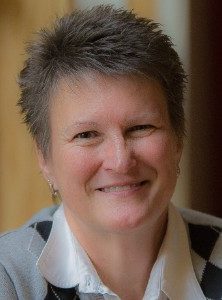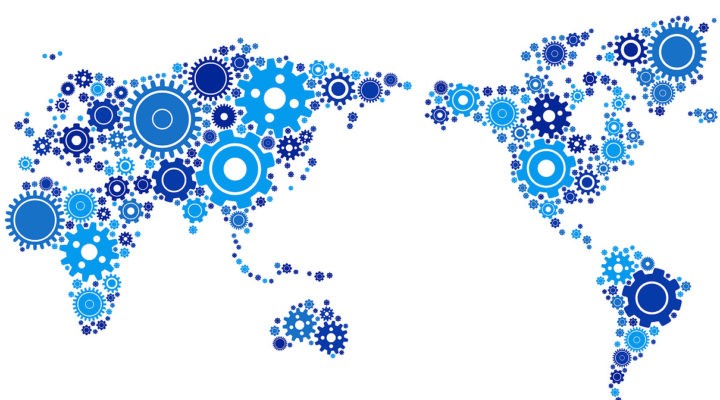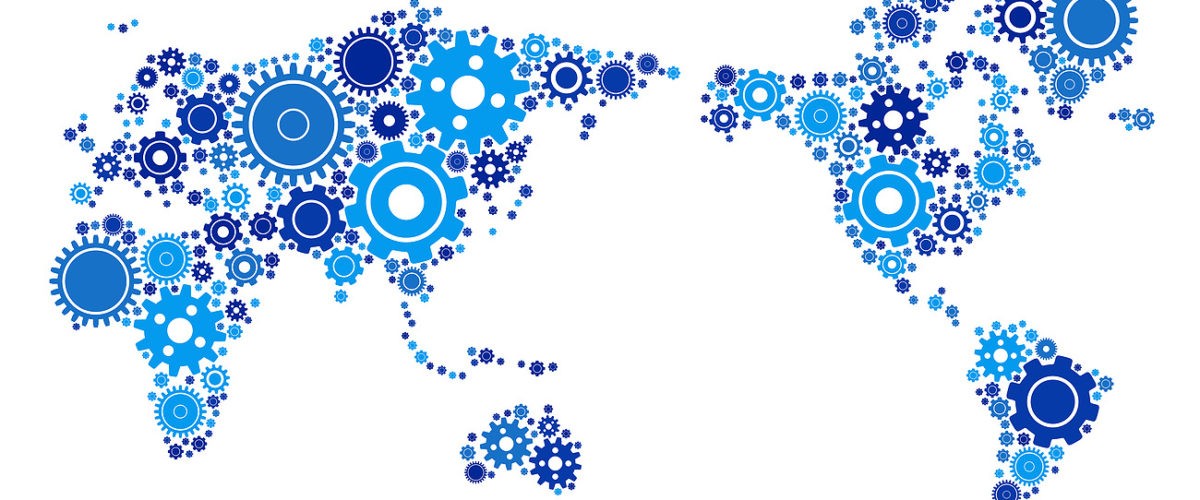2020 is not going so well. There’s a devastating novel coronavirus. Millions of people are unemployed. Hurricane season has started. There are murder hornets and locusts and bubonic plague. And then the Feds came uninvited to Portland. Some folks are saying the pandemic is a hoax. Others feel compelled to say, “white lives matter” in response to protests over police killings of Black people. We’re on the brink of irreversible environmental devastation, even as the current administration rolls back environmental protections. People in the U.S., including Christians, are so divided, I’m starting to wonder how we ever come back from all of this.

Susan Shaw
Yet as Christians we are called to be ministers of reconciliation, to love in the face of hate, to repair the world. We are called to put selfishness aside, to side with the vulnerable as God does, to be meek, merciful and peaceful, and to bring about liberation.
No wonder so many people who call themselves Christians find it easier to embrace the politically powerful, shout slogans and insult people who challenge their narrow definitions of Christian faith.
Being the people of God is hard work. How much easier to insulate oneself in groups where everyone looks just alike.
And how hard to love those with whom we disagree and who may do us harm.
Our world is broken. And we have to repair it.
In Hebrew, the phrase tikkun olam means “repair of the world.” In contemporary Judaism, the concept means that, not only are Jews responsible for the welfare of their own communities, but they are also responsible for the welfare of the world.
Jews believe that performing of mitzvot (good deeds or religious obligations) is one means of tikkun olam, helping to perfect the world. We must be the world we want to see; we must do the things that reflect the kind of world we want. In Jewish thought, the Jewish community is to be a model for the world; their responsibility is to show in the way they live the way the world can be.
“We must be the world we want to see; we must do the things that reflect the kind of world we want.”
I’d say this is the task for all of us who want a world of justice, peace and love. We must build the community we want in the places nearest to us as models for the larger world.
To think about how to repair our own neighborhoods, I turned to five lessons learned from neighborhood revitalization efforts.
First, take care of the emergencies. If a building is falling down, fix it. As we repair the world, starting with the world right around us, we have to address urgent issues to make sure basic human needs are met. We repair the world when we feed, clothe and house people, when we help women and children out of domestic violence, when we provide welcome for refugees from war and persecution into our neighborhood.
Second, tackle the eyesores, the worst things in the neighborhood. We have to ask why someone is hungry, why someone is unhoused, why someone is targeted for being Black or brown or gay or trans, why women are brutalized. We can’t repair the eyesores without significant systemic change. There’s a reason the eyesore is there, and it’s rarely solely the fault of the individual owner. We all exist in complicated and intersecting systems of gender, race, social class and other forms of difference that have profound impact on our experiences in the world.
Repairing the world means addressing these systems as well as the individual needs right in front of us. Racism is an eyesore. The numbers of missing and murdered indigenous women is an eyesore. This mistreatment and exclusion of trans people is an eyesore. We tackle the eyesores with an engaged politics — we vote, we campaign, we lobby, we educate, we resist.
Third, build on strengths. Where are the places in the neighborhood that are in pretty good shape but still need a little work? We can increase our power to repair the world if we can build on the strengths of our existing organizations, especially if we can figure out how to collaborate with one another and how to build coalitions to tackle issues that harm the folks in our neighborhoods — or in any neighborhood. That means Black Lives Matter works with the Human Rights Campaign, which works with Planned Parenthood, which works with Unidos U.S., which works with the Anti-Defamation League, which works with the Council on American-Islamic Relations. We have strength in our individual efforts, but we have to magnify that strength by working together for change for all of us.
Fourth, work for revitalization without gentrification. Repairing the world won’t work if we move the most vulnerable to the side in the process. In liberation theology, we understand God as siding with the oppressed. So repairing the world means we aren’t just fixing up the neighborhood so the more affluent can move in. We’re repairing it with and for those who are oppressed. It’s not a gated community. It’s a mixed-income, mixed race, multi-use, open and affirming neighborhood.
And finally, work outward in all directions. Not only do we have to engage our partners in repairing the world, but we have to develop new partners. We have to figure out how to work with those with whom we disagree, to find common ground without compromising principle. We won’t repair the world if we don’t find a way to speak with those whom we oppose.
This is where discipleship gets costly. We can’t control what they do, how they act, how they respond to us. We can only control ourselves. And so we have to ask ourselves: “Who do I want to be?” “What kind of person do I want to be?”
“Do I want to repair the world, or do I want to burn it down?”
Do I want to be someone who returns ugliness for ugliness, violence for violence? Do I want to be someone who stereotypes and dehumanizes? Do I want to post Facebook memes I don’t fact check just because they reflect what I want to be true? Or do I want to be someone who acts in love, in patience, in gentleness, in self-control? Do I want to be someone who acts justly even in an unjust situation? Do I want to repair the world, or do I want to burn it down?
Those are questions Christianity in the U.S. needs to face. Are Christians going to be true to the center of real religion — love of God, love of humans, love of the earth — or are we going to be institutional tools of systems of oppression, more in love with power than the gospel of Jesus Christ? Are we going to devastate the world or are we going to repair it?
The world may never return to what we knew before. That’s not necessarily a bad thing. After all, that world wasn’t so great for a lot of people. We have a moment now to reimagine the world, to think about what comes next, to build something better.
The words of Isaiah 58 are relevant: “Is not this the fast that I choose: to loose the bonds of injustice, to undo the thongs of the yoke, to let the oppressed go free, and to break every yoke? Is it not to share your bread with the hungry, and bring the homeless poor into your house; when you see the naked, to cover them, and not to hide yourself from your own kin? Then your light shall break forth like the dawn, and your healing shall spring up quickly; your vindicator shall go before you, the glory of the Lord shall be your rear guard. Then you shall call, and the Lord will answer; you shall cry for help, and the Lord will say, Here I am. If you remove the yoke from among you, the pointing of the finger, the speaking of evil, if you offer your food to the hungry and satisfy the needs of the afflicted, then your light shall rise in the darkness and your gloom be like the noonday. The Lord will guide you continually, and satisfy your needs in parched places, and make your bones strong; and you shall be like a watered garden, like a spring of water, whose waters never fail. Your ancient ruins shall be rebuilt; you shall raise up the foundations of many generations; you shall be called the repairer of the breach, the restorer of streets to live in.”
Isaiah 58 was written after some Jews had returned to Jerusalem from exile in Babylon. While much of the book of Isaiah points to failures of the community as a whole, the writer of Isaiah 58 uses the singular “you” to address these people. The writer argues that, while waiting for God’s promises to be fulfilled, individuals have the responsibility to do what they can where they are to repair the world.
The problems of 2020 are community problems, and they are problems each of us as individuals can address. Each of us is called to repair the world where we are in our daily lives. And as each of us works with others, together we can repair the world.
Susan M. Shaw is professor of women, gender and sexuality studies at Oregon State University in Corvallis, Ore. She also is an ordained Baptist minister and holds master’s and doctoral degrees from Southern Baptist Theological Seminary. Her most recent book is Intersectional Theology: An Introductory Guide, co-authored with Grace Ji-Sun Kim.
More by Susan Shaw:
10 reasons for hope in this time of dystopia
Transforming a multi-issue culture requires us to be multi-issue people


